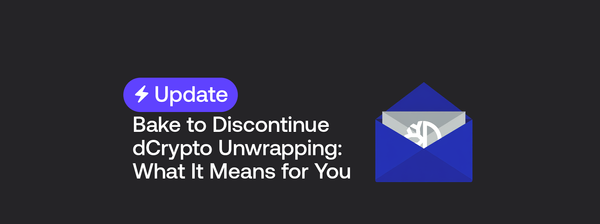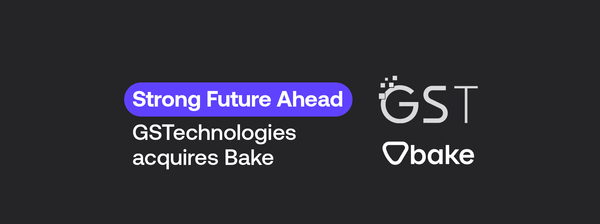Decentralized Exchanges (DEXs): The Future of Trading is Decentralized
Lately, cryptocurrency centralized exchanges (CEXs) have been doing no favors for industry sentiment. Confidence in CEX platforms has fallen from previous highs as CEX customers' awareness of the security of their funds can be compromised by the management practices of CEX companies.
The FTX collapse in 2022, the recent Kucoin 'criminal conspiracy' charges, and Binance’s founder’s recent jail sentence are just a few incidents that have shaken investor and consumer confidence.
Questionable CEX practices have underscored the urgent need for a more secure and transparent alternative in financial trading for cryptocurrencies.
Enter decentralized exchanges (DEXs).
What is a Decentralized Exchange (DEX)?
A decentralized exchange (DEX) is a type of cryptocurrency exchange that allows users to conduct transactions directly with one another without the need for an intermediary or central authority. This system contrasts sharply with traditional centralized exchanges (CEXs), where the exchange itself facilitates and oversees transactions.
In a DEX, the trading process is managed through automated smart contracts on the blockchain. These smart contracts are self-executing contracts with the terms of the agreement directly written into code. When a user wishes to trade cryptocurrencies, they do so directly from their own digital wallets, without transferring control of their assets to the exchange.
The Role of Decentralized Exchanges (DEXs)
Eliminating Intermediaries
The primary role of DEXs is to eliminate the need for intermediaries. In traditional trading, a platform or broker will facilitate all transactions and have control over all user funds.
This leads to potential security risks, slower transaction times, and increased costs (as the intermediary charges a fee). DEXs completely remove the need for these intermediaries.
Liquidity and Price Discovery
The next role of DEXs is to provide liquidity to assets. In any financial market, the ability to buy and sell assets at stable and transparent prices is crucial. DEXs supply this through liquidity pools.
Liquidity pools are crowdsourced pools of cryptocurrencies that provide the liquidity needed for trading. Anyone can become a liquidity provider by locking their assets in these pools in exchange for a share of the transaction fees.
This system facilitates efficient trading and contributes to more stable and reliable price discovery. In volatile markets like those of cryptocurrencies, having reliable price information gives investors confidence they are purchasing their assets at the correct price.
Transparency and Security
Another advantage of decentralized exchanges is their transparency. DEXs typically run on blockchain technology, which is open-source by nature. This means that the code underlying these platforms is available for anyone to audit and review, which helps identify any potential security flaws.
Furthermore, since trades occur directly between users' wallets through smart contracts, there's no need for traders to transfer their assets to the exchange, reducing the risk of hacking and theft that plagues centralized exchanges.
Why DEXs Are Leading the Future of Trading
The recent turmoil in the centralized exchange (CEX) market has only highlighted the strengths of decentralized exchanges. Several high-profile failures and scandals within the CEX space have led to a loss of trust among investors, bolstering DEXs' appeal.
Self-Custody of Assets
One of the defining features of DEXs is the empowerment they offer users through self-custody of assets. Unlike CEXs, where the exchange controls your funds, DEXs allow traders to maintain direct control over their funds.
This self-custody model significantly lowers the risk of asset theft stemming from exchange breaches, which have plagued many centralized exchanges. DEX removes the need to trust a third party's security practices, which may often be inadequate.
Early Access to New Assets
DEXs also democratize access to new and potentially lucrative digital assets. New cryptocurrencies and tokens are always available on a DEX as soon as they launch.
For investors, this provides a critical advantage— early access to potentially high-yield assets before they reach mainstream platforms. This feature of DEXs attracts a more forward-thinking investor base and creates a market environment where innovation is rapidly rewarded.
The Rise of Memecoins and Real-World Assets
An example of DExs providing early access to lucrative assets is through the trading of memecoins and tokenized real-world assets (RWAs).
DEXs facilitate the initial trading and liquidity of memecoins, often long before they are recognized by larger, more conservative exchanges. For investors looking to take advantage of the memecoin frenzies occurring on Solana (or other networks), DEXs are the only way to get in early.
DEXs are also leading the way in integrating RWAs like art, real estate, and commodities into the digital marketplace. By offering tokenized forms of these assets, DEXs expand the scope of tradable assets, enhancing liquidity and opening new opportunities for investors. This broadens market participation and contributes to the overall liquidity and health of the financial ecosystem.
The Benefits of Decentralization
Interoperability
One of the standout features of DEXs is their ability to work seamlessly with other applications in the decentralized finance (DeFi) ecosystem. This allows users to engage in complex financial operations, such as staking, lending, and borrowing, all within the same interface.
Privacy
Unlike centralized exchanges (CEXs) that require users to undergo rigorous identity verification processes, DEXs allow users to trade directly from their wallets without revealing personal information. This is particularly appealing to more privacy-mined investors who wish to keep records of their financial activities out of the hands of potentially-hackable databases.
Financial Inclusion
DEXs are also making financial services more accessible to everyone, regardless of their geographic location or economic status. By eliminating the need for traditional banking infrastructure and the associated costs, DEXs lower the barriers to entry for financial participation. This is particularly important for individuals in underserved or unbanked regions, where access to traditional financial services can be limited or non-existent. The only requirements for engaging with a DEX are an internet connection and a digital wallet.
How to Invest in the Future of Trading
It is possible to invest directly in almost all major DEXs in the crypto space. DEXs will usually launch their own utility token, which can be used to reduce trading fees and give governance power to allow users to interact and influence the future direction of the DEX directly.
Through Bake’s All Hands on DEX Smart Bundle, you can optimize your exposure to the tokens associated with the nine industry-leading Decentralized Exchanges in just a couple of taps.

DISCLAIMER: Please note that the information on this blog and in any articles posted on this blog is for general information only and should not be relied upon as financial advice. Cake Pte. Ltd., Cake DeFi, UAB, and its affiliates (the “Cake Group”) are not licensed financial advisers. You may wish to approach your own independent financial advisor before making any decision to buy, sell or hold any product and/or digital assets mentioned in this blog.
Any views, opinions, references, assertions of fact and/or other statements are not necessarily the views held by the Cake Group. The Cake Group disclaims any liability whatsoever that may arise out of or in connection with such statements. Always do your own research before investing in any financial assets and consult a qualified financial advisor if necessary.




